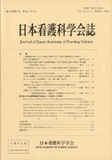Japanese
English
- 販売していません
- Abstract 文献概要
- 参考文献 Reference
- サイト内被引用 Cited by
要旨
本研究は,過疎農山村における家族介護者の老人介護と農業両立の意味を探求することを目的とした.方法論としてエスノグラフィを用いた.データ収集は27名の要介護老人の介護者,住民および保健医療福祉関係者に対するインタビュー,参加観察,村の書類,資料等の検討であった.得られたデータを方法と動機の観点から分析した結果,以下のことが明らかとなった.
(1)農村介護者は介護と農業両立の仕事の調整方法として,1日の生活時間に両者を組み込でいく〈介護と農業の組み込み戦略〉を用いていた.
(2)介護と農業両立の動機づけには,〈伝統的価値規範の内面化〉,〈村落共同体的集団原理に従う〉,〈農業継続困難な現状の受け入れ〉といった消極的動機づけ,〈老人に対する愛情〉,〈生き甲斐としての農業〉,〈行為へ価値づける〉積極的動機づけがみられ,これは介護と農業を調整する自己認識の調整であった.
(3)農村介護者の消極的動機づけによる介護と農業継続の内面化,および自らの主体性に意味づける積極的動機づけから,〈農村介護者は介護と農業を両立できることに自己存在の意味を見出す〉をテーマとして抽出した.このテーマは,農村介護者の現実への対処行動だけでなく,自己を積極的に意味づけて生き抜く,農村介護者の生き方をも示していた.
以上のことから,農村介護者の伝統的価値規範を問題意識化することなく受容する認識面,およびそれを支持する社会的環境面の問題を提示するとともに,介護と農業継続に関する農業の重要性について述べ,地域看護実践のあり方を考察した.
Abstract
The purpose of this study was to explore the meaning of managing both caring and farming among family caregivers of impaired elders in a small village. Ethnography was employed in data collection and analysis. Three modes of data collection were used: interviews of family caregivers (n=27) and also community members and health and welfare professionals; participant observation; and survey of community documents. The data were analyzed focusing on the managing strategies of caregivers and their motivations.
The findings were as follows:
(1) Caregivers used'incorporating strategies'to integrate both caregiving activities and farm work into their daily life.
(2) Two kinds of motivations influence caregivers' continuing engagement in both caregiving and farming. One set of significant motivations (negative motivations) reflected the context of life in a rural area; 'internalizing of traditional values and norms'such as family caregiving,'following the principle of group in a rural communal society'to avoid social sanction and'accepting the difficult situation not to be able to continue farming'because of younger generation working outside the village and decreasing the supports from neighbors. The second set of positive and reinforcing motivations, were'affection for the elder','valuing farming as work worth doing'and'valuing caregivers'own acts' as evidence of their ability to continue caring and farming.
(3)'Rural family caregivers find the meaning of their reason for living in their own acts in managing to both care for impaired elders and farm'emerged as the major theme of this study. Underlying this theme is the value that caregivers placed in their independent acts. The theme refers not only to their adaptation to the actual situation, but also to seeking meaning for their life.
From these results, it was suggested that continuing to farm and providing care for family members are deeply embedded values. Caregivers accept traditional values and norms without an awareness of the social conditions which impose both caring and farming on them. And farming is very important in the lives of rural caregivers. Taking into account these perspectives, community health nursing activities to support rural family caregiving were discussed.
Copyright © 1999, Japan Academy of Nursing Science. All rights reserved.


